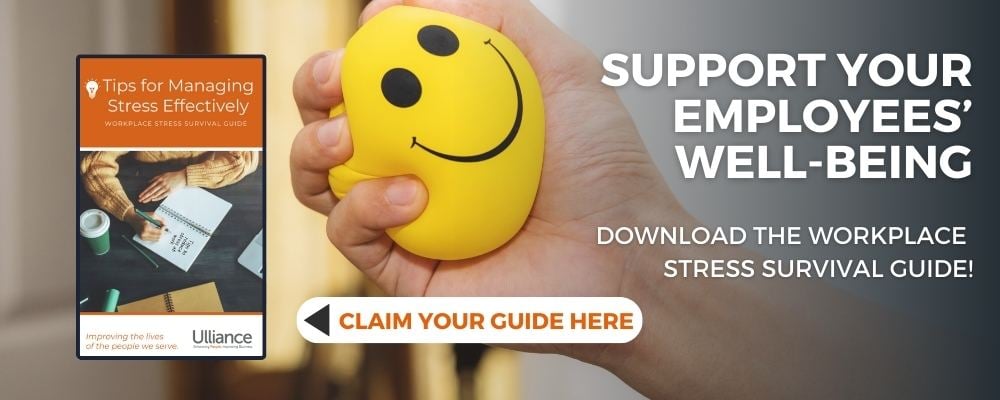Born between 1981 and 1996, Millennials (also known as Generation Y) accounted for nearly a quarter of the total population as of the 2020 US Census.
At approximately 56 million, this generation is now the largest in the workforce, reshaping the workplace with their distinct values and preferences.
Who Are the Millennials?
Millennials, currently in their mid-twenties to early forties, have experienced a changed world that shapes their views on work and the world in general. Generation Y:
- Grew up during an era of rapid technological advancement and shifting social norms.
- Have been called "the unluckiest generation" because they've come of age in a period of slow economic growth.
- Are the first generation to grow up with access to technology always at their fingertips.
- Witnessed major world events such as 9/11, the Great Recession, and the Covid pandemic.
Millennials have been described as optimistic, ambitious, and confident individuals. However, they often have been saddled with negative stereotypes, particularly when it comes to the workplace. Dispelling these myths surrounding this generation reveals their potential to drive innovation, efficiency, and positive change within organizations.
By understanding and addressing their unique needs, employers can harness the strengths of Millennials, integrating them effectively into a diverse and dynamic workforce. This approach not only benefits Millennials but also strengthens the entire organizational structure, paving the way for a more adaptable and forward-thinking workplace.

Debunking the Stereotypes: A Deeper Look
Negative stereotypes paint Millennials as disloyal job-hoppers, overly reliant on technology, and lacking a strong work ethic. However, these generalizations fail to reflect the reality of Millennials' experiences fully.
tech junkies versus tech-savvy efficiency experts
Millennials are often portrayed as technology-obsessed, glued to their phones and social media. While it's true that they are adept at utilizing technology, this is not necessarily a bad thing. Growing up with unprecedented access to information and communication makes them highly efficient multi-taskers. They can use technology to streamline processes, increase productivity, and improve communication within the workplace.
job hoppers versus well-educated and driven
Switching jobs seems to be the norm for Millennials, with an average of 2.8 job changes before the age of 30 according to a study by Deloitte. However, this statistic fails to account for the impact of economic instability and the trend toward contract or freelance work. Many Millennials have multiple jobs or side hustles in order to make ends meet, rather than simply jumping ship due to a lack of loyalty or commitment.
Furthermore, Millennials are highly educated - more so than previous generations. This means they have a strong desire for personal growth and development, seeking out opportunities and challenges that will help them advance in their careers. Employers who offer meaningful learning experiences can attract and retain top talent from this generation.
entitled versus seeking purpose
Millennials are often accused of being entitled and expecting instant gratification. However, this is a misinterpretation of their desire for purpose and meaning in their work. This generation prioritizes finding meaningful work over simply chasing a paycheck. Employers who can offer a strong sense of purpose and social responsibility will attract motivated Millennials who want to make a positive impact through their careers.
Narcissistic versus confident
What may sometimes be viewed as narcissism, Millennials' confidence often stems from a different place than the stereotype suggests. This generation grew up in an environment that emphasized participation and positive reinforcement. This fostered a strong sense of self-worth and a desire to excel. Their confidence can be a valuable asset in the workplace, translating into initiative and a willingness to take on challenges.
financially irresponsible versus economically burdened
Millennials are often perceived as spending their money frivolously on experiences rather than saving, but this stereotype fails to take into account the broader economic context. The Great Recession occurred as Millennials were entering the workforce, which limited job opportunities and hindered wage growth.
Additionally, the high cost of housing and the burden of student loans make it difficult for them to achieve financial milestones such as homeownership. However, Millennials' prioritization of experiences and personal fulfillment does not mean they are irresponsible with their money. They are conscious consumers who often research and compare prices before making purchases.
Benefits of Millennials in the Workplace
Millennials bring a unique set of skills and values to the workplace, offering several advantages to companies that understand and leverage their strengths. Here's how Millennials can positively impact your organization:
- Millennials' savvy with technology allows them to streamline processes, boost productivity, and improve communication within the workplace.
- Being highly educated and possessing a strong desire for personal growth, millennials seek opportunities and challenges that will help them advance in their careers.
- Millennials thrive in collaborative environments where open communication is encouraged. Their directness in seeking feedback can foster a culture of teamwork and innovation.
- Millennials' fresh perspectives and willingness to challenge the status quo can lead to new ideas, creative solutions, and a more adaptable work environment.
- Millennials value diversity and inclusion in the workplace, which can contribute to a more welcoming and representative company culture.
- Growing up in a digital age, Millennials understand the importance of customer experience, making them valuable assets in roles that require a focus on customer satisfaction.
Millennials in the Workplace: Impact and Integration
Millennials aren't just a distinct demographic; they're a force impacting the way businesses operate.
Organizations interested in maximizing the potential of Millennials in the workplace should take steps to understand their expectations and develop supportive policies that are mutually beneficial.
7 steps to support millennials in the workplace
1. foster a collaborative environment
Millennials thrive in collaborative settings where open communication and teamwork are emphasized. Companies can foster this environment by utilizing collaborative technologies, promoting team projects, and encouraging open discussions.
Creating spaces that support co-working and idea exchange can also aid in building a community within the workplace, which Millennials find appealing. These efforts not only maximize their potential but also contribute to a more dynamic and inclusive company culture.
2. flexible work arrangements
Gen Y values work-life balance highly, preferring flexible work arrangements that allow them to manage their personal and professional lives effectively.
"Millennials don't see much distinction between their job and their life, they expect flexibility and work-life balance, and they will quickly bail on companies that don't meet their definition of a life well-lived."
~Gallup
Employers can meet this need by offering options like telecommuting, flexible hours, and compressed workweeks. Such policies signal trust and respect for employees' individual needs, leading to higher job satisfaction and retention rates among Millennials.
3. continuous learning and development
Millennials have a strong desire for personal growth and development, viewing their careers as a continuous learning journey. Organizations can support this by offering ongoing training programs, mentorship opportunities, and clear pathways for career progression. Investing in Millennials' growth not only aids in their professional development but also ensures the organization is evolving and staying competitive.
4. purpose-driven work
Purpose and meaningful work rank high on Millennials' list of job priorities. Companies that clearly communicate their mission, values, and impact on society will resonate more with this generation. Providing opportunities for Millennials to contribute to social or environmental causes through their work or company initiatives can further engage and motivate them.
5. recognition and feedback
Millennials appreciate regular feedback and recognition for their contributions. Unlike the traditional annual review process, they prefer more frequent check-ins and constructive feedback sessions. Implementing recognition programs that highlight individual and team achievements can also boost morale and reinforce a positive company culture.
6. inclusive and diverse work environment
A commitment to diversity and inclusion is critical for attracting and retaining Millennials. They value diverse perspectives and seek out workplaces where inclusivity is practiced in policy and action. Building a culture that celebrates diversity in all its forms—gender, race, ethnicity, sexual orientation, and more—enhances innovation and team cohesion. Employers who prioritize diversity and inclusion will see the benefits in attracting and retaining Millennials.
7. capitalize on the multi-generational workplace
As the number of Baby Boomers who work past retirement age continues to increase, we can expect to see more multi-generational workplaces. Such a scenario provides an excellent opportunity for Millennials to learn from and work with people from different generations.
Employers who foster communication and collaboration among different generations can leverage the unique viewpoints and expertise that each generation brings to the table, allowing Millennials to gain knowledge and experience from their older colleagues.
Final Thoughts
As the largest generation in the workforce, Millennials have a significant impact on how businesses operate and succeed. By understanding their values and expectations, organizations can successfully integrate Millennials into the workplace and benefit from their unique skillsets and contributions.
When you partner with Ulliance, our Life Advisor Consultants are always just a phone call away to teach ways to enhance your work/life balance and increase your happiness. The Ulliance Life Advisor Employee Assistance Program can help employees and employers come closer to a state of total well-being.
Investing in the right EAP or Wellness Program to support your employees will help them and help you. Visit https://ulliance.com/ or call 866-648-8326.
The Ulliance Employee Assistance Program can address the
following issues:
• Stress about work or job performance
• Crisis in the workplace
• Conflict resolution at work or in one’s personal life
• Marital or relationship problems
• Child or elder care concerns
• Financial worries
• Mental health problems
• Alcohol/substance abuse
• Grief
• Interpersonal conflicts
• AND MORE!
Have some questions about our services? Book a quick meeting below!
References:
5 Reasons Millennials in the Workplace Leave Their Jobs; Leaders; Hannah Miller, https://leaders.com/articles/company-culture/millennials-in-the-workplace/
7 Tips for Managing Millennials; Monster.com
https://hiring.monster.com/resources/workforce-management/leadership-management-skills/management-styles/
Perception vs. Reality: 10 Truths About The Generation Y Workforce; LiveCareer; Randall Hansen
https://www.livecareer.com/resources/careers/planning/gen-y-workforce
What Do Millennials Really Want at Work? The Same Things the Rest of Us Do; Harvard Business Review; Bruce N. Pfau https://www.gallup.com/workplace/324218/millennials-finally-workplace.aspx
Will Millennials Finally Get the Workplace They Want?; Gallup; Jennifer Robison, https://www.gallup.com/workplace/324218/millennials-finally-workplace.aspx

